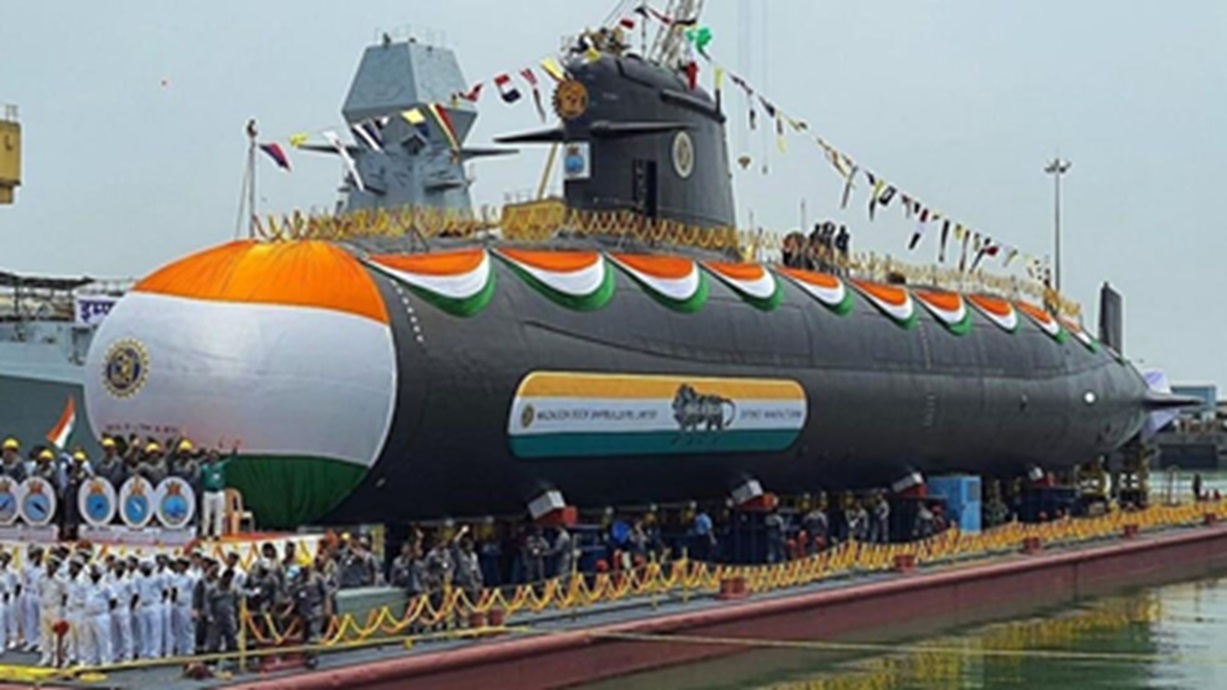The current Israel-Hamas conflict which started last year on the 7th October 2023 in West Asia has various strategic implications for many nations around the world. It’s an important region of the world with its important geography known for its oil-producing capabilities as well as the various regional conflicts among the nations. The entire world’s major energy needs, especially for the South and South East Asian nations are met through this region. While this conflict adds to the increasing instability in the world, which is already bearing the brunt of the ongoing Russia-Ukraine conflict, some nations will see a silver lining in this war, especially China, which is always on the lookout for such conflicts to either defame the western world and its policies towards the Global South or to extract strategic gains.
We are already aware that since the reduction and withdrawal of US troops from the West Asia in Iraq and in Afghanistan, China has been looking to fill the vacuum to exploit the vulnerabilities and to forge new allies in this region to expand its foreign policy objectives. While on one hand, China will have an opportunity to expand its influence among the Muslim Arab nations, but on the other hand, it will face the wrath from the US, EU and specially Israel, with which China wanted to gain prominent technology which is comparable to the west. Therefore, we now look at three core strategic aspects of this conflict which lie in front of China’s foreign policy in this region.
Gaining Support from the Muslim World and One-China Policies
The Israel-Hamas conflict has given China the opportunity to manipulate public opinion about being sympathetic towards the Palestinian cause and respectful towards Islam, thereby promoting itself as a friend of Arabs and Muslims around the world, at the same time undertaking brutal repression of Uyghur Muslims in the western Xinjiang province, violating their human rights. The CCP’s brutal and ruthless repression of Turkic origin people in Xinjiang, including their ability to freely practice their Muslim faith has been widely documented by the UN itself and they have slammed China for the same. But quite surprisingly and unfortunately, West Asian Arab countries and Muslim-majority countries around the world have turned a blind eye to this and abstained from condemnation of Beijing’s campaign of mass incarceration and systemic persecution.
The other gain from the Muslim world will be their agreement to follow the One-China Policy involving Tibet and Taiwan, which are core interests for China. The Palestinians know that since China supports their cause in the UN, they also tow the line of the Chinese in matters of Xinjiang. In fact, the Palestinian Authority has said that the Chinese policies in Xinjiang is “not about human rights issues at all, but about fighting terrorism, radicalization and separatism.” Hence Supporting Palestine in the UN and indirectly/silently Hamas actions helps China to gain Ignorance from the Muslim world about its actions. This will also help China to gather favour from OIC countries as a whole for its benefits.
As an of the above example, Indonesia and Malaysia, two Muslim majority nations in the South East Asian region are against the US policy in the Israel-Palestine conflict since decades. In this regard, Malaysian Muslims generally think that the West practices double standards. Indonesia’s President Joko Widodo appealed to President Biden in a recent visit to accept “the root cause of the conflict (is) the occupation of Palestinian land by Israel.” He implored for the President to “do more to stop the atrocities in Gaza.” China is aware of the fact that the US needs the support of Islamic nations like Indonesia and Malaysia to oppose Beijing in the SCS.
Damage to Relations with Israel
The position which China has taken with regards to the Hamas terrorist attack against Israel can be understood in many ways since it looks controversial. First, China wants to cement its long-held position that a two-state solution should be implemented between Israel and Palestine. Secondly, it wants to project itself as a peace-seeking power, unlike US which has directly taken the side of Israel. Third, it wants to promote itself as a voice and leader of the Global South, which it feels has been taken away by India, through its successful G-20 Presidency in September, where the Chinese President was absent and which saw the inclusion of Africa in the G-20 grouping.
While China may look to be a peace maker, it actually has intentions to invoke anti-western sentiments in the Muslim nations. Although China does consider Israel to be a strong ally of the US, it does have good relations with Israel. Therefore, China has tried not to portray itself as ‘anti-Israel’, but ‘anti-US’ with its position. But in this regard, little does it realize that it has already damaged its relations with Israel. China’s anti-American and anti-Western position came with an accusatory posture towards Israel while excusing, ignoring Hamas’ actions on 7th October. A Day after Hamas perpetrated the worst atrocities committed against the Jewish people since the Holocaust, China’s Foreign Ministry had nothing to say on that matter. This shows China’s lack of any sensitivity towards any event which is of importance in world affairs and which affects the security of any region of the world.
Israel has reacted sharply to China’s ignorance of the Hamas attacks, which came as a disappointment to them after warming up of their relations in areas of economic, scientific and technology cooperation. China was even allowed investment opportunities in the high-tech start-ups which was not taken well by the US also. The foreign ministry of Israel has directly issued statements in this regard to express their disappointment with China’s official statements where there was no clear and unequivocal condemnation of the massacre committed by Hamas. Similarly, Efraim Halevy, ex Mossad chief said that China has failed to take on a central role over the war between Israel and Hamas as it pursues other interests.
The after effect of this Chinese stand can also be observed immediately, where Israel’s envoy in Taipei in Taiwan said that Taiwan has been a good friend of Israel, whereas China’s response has been disturbing. This statement can be a signal that Israel may not be too willing to accept the ‘One-China policy’ with regards to Taiwan in future. Secondly, if Israel does decide to teach China a good lesson, it can start sending advanced weapons and Air-Defence to Taiwan to defend itself from Chinese aggression which will be a game changer for Taiwan and will support the US cause. Who knows in future, Israel can also establish diplomatic relations with Taiwan? The second sign of souring relations can be seen via the joint statement of the UN Third Committee on Human Rights Violations in Xinjiang where Israel along with 50 other nations has condemned China’s policies, terming it as International Crime.
Risk of China being Tagged as a Supporter of Terrorism
The most embarrassing thing for China would be to be labelled as a nation which supports terrorism, which will undermine its credibility in the international arena. Earlier also in the UNSC, China has repeatedly taken controversial decisions to block proposals, including delaying the listing of prominent Pakistani terrorists like JeM Chief Maulana Masood Azhar, Abdul Rauf Asghar who was an accused in 1999 IC-814 hijacking and Indian Parliament attack, LeT deputy chief Abdul Rehman Makki, and more recently 26/11 terror accused LeT commander Sajid Mir.
China’s Foreign Minister has even gone ahead to say that “Israel’s actions have gone beyond Self-Defence”. In a call with his Saudi Arabian counterpart, Wang said Israel should stop its “collective punishment” of Gaza’s civilians. In the UNSC also, China has backed two resolutions in the UNSC drafted by Russia and Brazil, respectively, and has voted against a US-drafted resolution that its ambassador to the UN, Zhang Jun, said was “evasive” and “seriously out of balance”. This shows how China is protecting the Iranian proxies indirectly at the high table in UN. Ultimately, all this can send a signal to its domestic population also, which can give rise to antisemitism. For example, Chinese social media Weibo has seen a wave of hatred towards Israel, which will further push the narrative that even citizens of Israel support barbaric actions of Hamas and support terrorism.
Conclusion
The Israel-Hamas conflict has definitely given some strategic benefits to China as per the above analysis. The gains seem more than the strategic losses. What remains to be seen is whether these gains are of long-term or short term for China. As far as India is concerned, definitely India will have issues in advancing the India Middle East Economic Corridor (IMEC) initiative as long as the conflict continues. Advancing and strengthening the Israeli-Taiwanese relations will be one of the takeaways. Encouraging Israel to prohibit transfer of its weapons technology to China will be useful for India.
Disclaimer: The views and opinions expressed by the author do not necessarily reflect the views of the Government of India and Defence Research and Studies
Title image courtesy:





